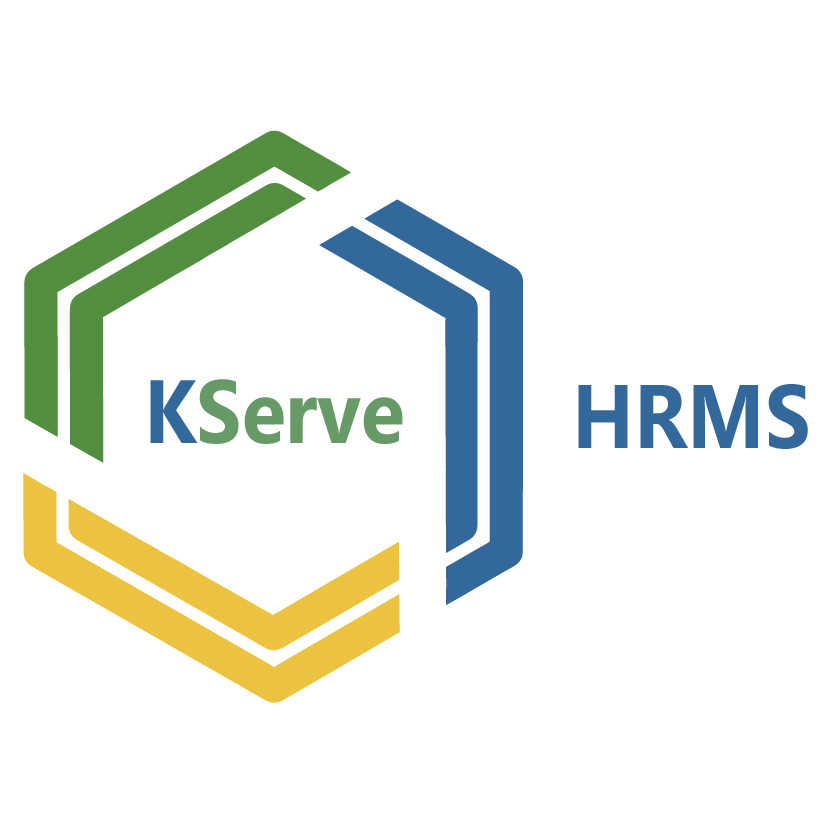Description

Arcoro

Compport Compensation Management
Comprehensive Overview: Arcoro vs Compport Compensation Management
Arcoro Overview
Primary Functions and Target Markets:
Arcoro offers a suite of modular HR software solutions designed to streamline workforce management, primarily targeting the construction, manufacturing, and field services industries. The company provides tools for applicant tracking, onboarding, performance management, time and attendance, and benefits administration. Arcoro focuses on industries with significant regulatory demands and blue-collar workforces, providing solutions that help manage compliance, reduce risks, and improve workforce productivity.
Compport Compensation Management Overview
Primary Functions and Target Markets:
Compport specializes in compensation management solutions designed to simplify and optimize salary structures, bonuses, and benefits management. Its primary functions include comprehensive compensation planning, performance management integration, analytics, and reporting. Compport primarily targets medium to large enterprises across various industries looking to automate and improve the efficiency of their compensation management processes. These industries often include sectors like finance, technology, pharmaceuticals, and retail.
Comparison and Market Share
Overall Market Share and User Base:
-
Arcoro: Arcoro's strength lies in niche markets like construction and field services, where it serves a customer base needing specialized solutions for labor-intensive industries. Its positioning within these sectors means while it may not command a large slice of the overall HR tech market in terms of sheer numbers, it maintains a solid presence within its target demographics.
-
Compport: Compport competes in the broader compensation management market, operating as a solution for enterprises looking to enhance their compensation strategies. Its market share reflects competition with other compensation tools, as it caters to a wide range of industries that prioritize integrated HR solutions rather than niche market specialization.
Key Differentiating Factors
-
Industry Focus:
- Arcoro: Tailors its solutions for industries with high regulatory burdens and requirements for field-based workforce management, offering capabilities that enhance compliance and productivity for blue-collar jobs.
- Compport: Concentrates on delivering sophisticated compensation tools applicable across multiple industries, facilitating advanced compensation strategy development and execution.
-
Functionality and Features:
- Arcoro: Offers a modular approach, allowing clients to customize their HR tech stack based on specific needs such as compliance management and labor tracking.
- Compport: Provides in-depth analytical tools and reporting features that help companies strategize and optimize their compensation frameworks, focusing on integrating performance and compensation data.
-
User Experience and Integration:
- Arcoro: Known for its industry-specific dashboards and interfaces that cater to the needs of HR teams in construction and related sectors, ensuring features align with everyday field and office operations.
- Compport: Emphasizes seamless integration with existing HR systems and performance management tools, making it easier for large enterprises to adopt and utilize within their existing tech ecosystems.
-
Scalability and Customization:
- Arcoro: Designed to scale with businesses as they grow within their specific industries, offering flexibility in regulatory compliance and workforce management.
- Compport: Offers robust scalability for organizations expanding their compensation management capabilities, providing adaptable frameworks for companies undergoing rapid growth or transformation.
Overall, the choice between Arcoro and Compport typically depends on the specific industry requirements, the complexity of the HR and compensation processes involved, and the strategic goals of the organization considering these solutions.
Contact Info

Year founded :
2018
+1 855-762-0523
Not Available
United States
http://www.linkedin.com/company/arcorohr

Year founded :
Not Available
Not Available
Not Available
Not Available
Not Available
Feature Similarity Breakdown: Arcoro, Compport Compensation Management
When comparing Arcoro and Compport Compensation Management, it's helpful to look at several key areas: core features, user interfaces, and unique features. Here’s a breakdown:
a) Core Features in Common
-
Compensation Planning: Both platforms offer compensation planning tools that allow organizations to manage salary, bonuses, and more. They help in structuring and planning employee compensation packages effectively.
-
Data Analytics & Reporting: Both provide robust analytics and reporting capabilities to help HR teams make informed decisions based on compensation data.
-
Budget Management: Includes features for managing and optimizing compensation budgets to align with organizational goals.
-
Compliance and Security: Both solutions maintain regulatory compliance with relevant labor laws and data protection regulations, ensuring sensitive employee data is secure.
-
Integration Capabilities: They offer integration with other HR systems and ERP software to streamline HR processes across platforms.
b) User Interface Comparison
-
Arcoro: Arcoro’s user interface is generally designed to be intuitive, focusing on ease of use for HR professionals with minimal technical guidance. Its dashboard is user-friendly, making navigation between modules straightforward. Arcoro often emphasizes a smooth onboarding experience and quick access to essential features.
-
Compport Compensation Management: Compport’s UI design tends to focus on providing detailed analytics and visualization tools, making it particularly valuable for organizations that need to analyze compensation data deeply. The interface is well-suited for users who appreciate data-driven insights and a more analytical approach to compensation management.
c) Unique Features
-
Arcoro:
- Modular HR Suite: Arcoro often markets its extensibility through a modular approach, where users can select additional HR functionalities beyond compensation, like applicant tracking or performance management, tailored to their needs.
- Mobile Accessibility: Arcoro places emphasis on mobile-friendly interfaces, allowing users to manage tasks on-the-go via tablets and smartphones.
-
Compport Compensation Management:
- AI-Driven Insights: Compport leverages artificial intelligence to offer predictive analytics and insights, which can provide more advanced forecasting and trend analysis compared to standard reporting features.
- Customization in Pay Structures: Compport offers increased flexibility in designing bespoke compensation models catering specifically to different industries or organizational needs.
By understanding these similarities and differences, organizations can better determine which platform aligns with their specific operational needs and strategic HR goals.
Features

Not Available

Not Available
Best Fit Use Cases: Arcoro, Compport Compensation Management
Arcoro and Compport Compensation Management are both SaaS solutions designed to optimize various aspects of human resources and compensation management, each with specific use cases suited to different business needs.
Arcoro
a) Best Fit Businesses or Projects:
- Construction and Specialty Contracting: Arcoro specializes in serving the construction industry and related sectors such as engineering and specialty contracting. Its focus on compliance, workforce management, and safety training aligns well with these industries' needs.
- Contracts with Regulatory Requirements: Companies working on government contracts or operating in highly regulated environments benefit from Arcoro’s robust compliance tools.
- Growing Mid-sized Businesses: Businesses experiencing growth and needing to efficiently manage onboarding, training, and workforce compliance will find Arcoro beneficial.
Industry and Company Size:
- Construction & Trades Industries: Due to specific features catering to construction operations, such as project-based workforce deployment and safety management.
- Mid-sized to Large Enterprises: Businesses needing scalable solutions to manage a growing workforce effectively, especially those requiring robust compliance and safety management features.
Compport Compensation Management
b) Preferred Scenarios:
- Global and Diverse Workforces: Companies with employees in multiple countries can benefit from Compport’s ability to manage complex, global compensation structures.
- Compensation Strategy and Benchmarking Needs: Companies looking to refine their compensation strategies or benchmark against industry standards.
- Complex Employee Benefit Schemes: Organizations providing diverse and intricate benefit schemes can utilize Compport for customization and detailed management.
Industry and Company Size:
- Corporate and Multinational Firms: Ideal for large corporations requiring sophisticated compensation management to attract and retain global talent.
- Technology and Finance Sectors: These industries benefit from performance-driven pay structures, which Compport facilitates through its analytics and reporting tools.
Catering to Different Industry Verticals or Company Sizes:
- Arcoro targets industries with high compliance and safety needs, such as construction and contracting, offering tools that handle project-based workforce management effectively.
- Compport, on the other hand, excels in sectors where complex compensation structures drive talent management, making it well-suited for large, diverse, multinational corporations, particularly in dynamic industries like technology and finance.
In conclusion, the choice between Arcoro and Compport depends largely on the specific needs of the industry and company size. Arcoro is best for compliance-focused sectors needing strong safety and workforce management, while Compport excels in providing detailed compensation and benefits management for companies with complex, global HR needs.
Pricing

Pricing Not Available

Pricing Not Available
Metrics History
Metrics History
Comparing teamSize across companies
Conclusion & Final Verdict: Arcoro vs Compport Compensation Management
To determine a conclusion and final verdict for Arcoro and Compport Compensation Management, we need to evaluate these platforms based on features, pricing, user experience, customer service, scalability, and integration capabilities.
Overall Best Value
Best Overall Value: Considering the varying needs of organizations, the best overall value would depend on specific organizational requirements such as budget, company size, and desired features. Generally speaking, if the focus is on a user-friendly interface and extensive customer support, Arcoro might offer better value. On the other hand, if an organization prioritizes cutting-edge features and customizable solutions, Compport might stand out as a better choice.
Pros and Cons
Arcoro:
Pros:
- User-Friendly: Arcoro is known for its intuitive interface, making it easier for HR teams to adopt and use effectively.
- Integration: Strong integration capabilities with other HR tools and systems streamline processes.
- Comprehensive Services: Includes additional HR functionalities beyond compensation management, offering more holistic solutions.
Cons:
- Customization Limitations: While sufficient for many users, some organizations may find Arcoro's features less customizable than needed for unique compensation management challenges.
- Pricing: Depending on the package, the cost can be prohibitive for smaller businesses, especially those that may not require the full suite of features offered.
Compport Compensation Management:
Pros:
- Highly Customizable: Offers extensive customization options, allowing organizations to tailor the platform to specific compensation processes.
- Advanced Reporting: Provides detailed analytics and reporting features that can aid decision-making.
- Innovative Features: Regular updates and an emphasis on feature-rich offerings keep it competitive.
Cons:
- Learning Curve: Given the wide array of features, there can be a steeper learning curve for new users compared to more straightforward platforms.
- Customer Support: Feedback suggests that while helpful, customer support can sometimes be slower to respond compared to competitors.
Recommendations
For users trying to decide between Arcoro and Compport Compensation Management, consider the following:
-
Organization Size and Budget:
- Smaller businesses or those with limited HR tech budgets may lean towards Arcoro for its ease of use and integration capabilities without excessive costs.
- Larger enterprises with complex compensation structures may find Compport's customization and reporting features more beneficial.
-
Feature Requirements:
- Organizations seeking a basic, straightforward compensation management system that offers additional HR tools might prefer Arcoro.
- Those needing a robust platform with advanced features and customization should consider Compport.
-
Implementation and Support Needs:
- If having responsive customer support and a quicker implementation process is a priority, Arcoro may be a safer choice.
- For companies that value depth of analytics and are ready to invest time in learning the system, Compport may offer superior long-term ROI.
Ultimately, the best choice depends on aligning the platform capabilities with the specific needs and strategic goals of the organization. Both solutions provide unique strengths that can enhance compensation management effectiveness when properly matched with user requirements.
Add to compare
Add similar companies




